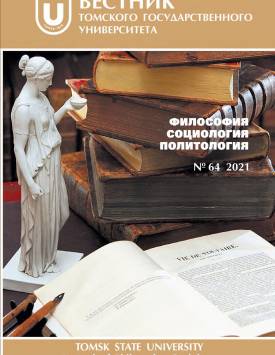“Trouser-Words” in John L. Austin’s Philosophy of Language
In his lectures “Sense and Sensibilia”, John L. Austin puts forward a very interesting and provocative idea that sometimes the dependence of two words expressed by terms, in which one is clearly negative and the other is clearly positive, can unexpectedly change to the opposite, that is, when the term, having a negative character, actually performs an affirmative function. It is usually assumed that, firstly, an affirmative use is basic, and, second, a positive word has a positive meaning, and a negative word is a negation of a positive one, which in itself does not add anything to the explanation of a positive word, but only indicates that a positive word may be limited in some situations. However, according to Austin, there are words that perform the opposite function. He suggests calling them “trouser-words”. As examples, Austin refers to the words “real” and “freedom”, which, although look positive, are intended to negate the negative words implied by the context. That is, “trouser-words” taken in this way, being positive in their meaning, are negative. Examples of the words “real” or “freedom” clearly show that their meaning is set not by the word itself, which looks positive, but by its negation. Austin sought to prove that words like “real” or “freedom” are intended mainly to exclude one, some or all of their opposites. To be free is not to be unfree; to be real is not to be unreal. It can even be said that the presence of negation constitutes the meaning of “trouser-words”, and their grammatical function is to exclude the possibility of their opposites in a certain context. Moreover, with the help of the idea of “trouser-words”, Austin tried to challenge the assumption that a “positive-looking word” should always be in the focus of philosophers. On the contrary, he insisted that when we ask such philosophical questions as “What is real?” and “What is freedom?”, we first need to find out what we exclude thereby and then establish the context in which this exception occurs.
Keywords
semantics, meaning, usage, linguistic analysis, John L. AustinAuthors
| Name | Organization | |
| Ogleznev Vitaly V. | Saint Petersburg State University; Russian State University of Justice | ogleznev82@mail.ru |
References

“Trouser-Words” in John L. Austin’s Philosophy of Language | Tomsk State University Journal of Philosophy, Sociology and Political Science. 2021. № 64. DOI: 10.17223/1998863X/64/7
